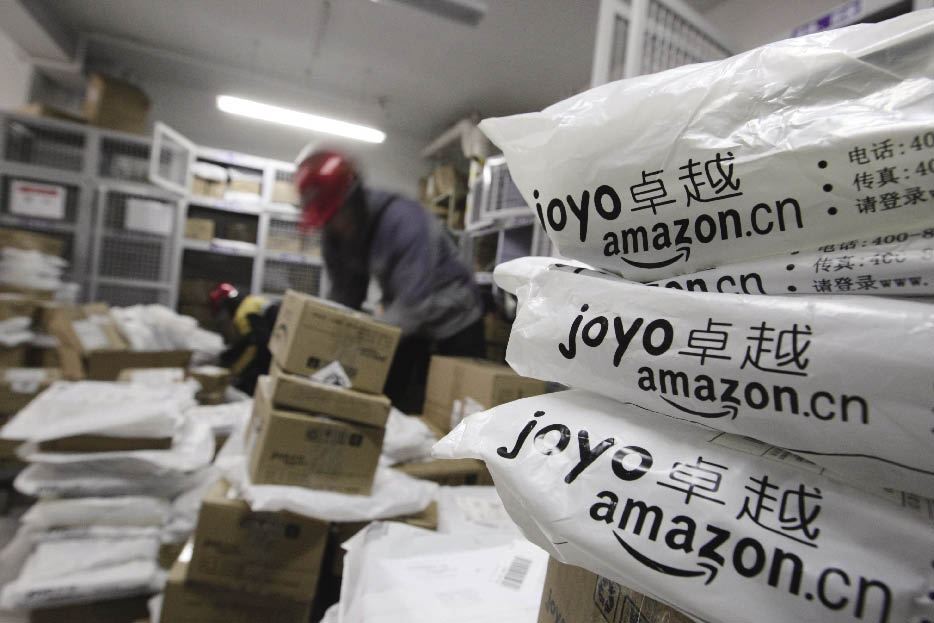|
Development in an Upward Spiral
 |
|
Joyo Amazon’s customer base has continued increasing since the financial crisis hit the world economy. China Foto Press |
Chinese domestic appliance retailer, Gome, achieved sales of RMB 100 billion in 2007, taking the retail business crown that year. It took Gome 20 years to accomplish these sorts of sales, but it took Taobao only five years to achieve similar sales from the time of its establishment in 2003, until the end of 2008.
In the initial stages following Taobao's establishment, investors, clients, and even the founder of the Alibaba Group itself held a pessimistic view of its progress. However, the website underwent a complete reversal of fortune to become the most successful online retailer in Asia. Ma Yun, president of the Alibaba Group, has set the company a goal of exceeding the sales of Wal-Mart within ten years. In 2008, Wal-Mart's global sales reached RMB 2.7 trillion, 30 times that of Taobao. However, Ma Yun says, "In order to attract 10,000 customers, Wal-Mart needs to spend huge funds to acquire land, equipment and storage space. In contrast, we just need one more computer." Confident in his assertion, Ma Yun decided to inject additional capital of RMB 2 billion into Taobao.
More and more investors have shown interest in the increasing business potential of e-stores and have begun to start up businesses in this field. The 2008 China Commercial Website Billboard, published by China Internet Weekly, shows that Taobao, Joyo Amazon, Tencent Paipai, Dangdang and Jingdong 360buy top the ranks. Of these, Taobao and Tencent Paipai specialize in C2C (consumer to consumer) trade, and the remaining three mainly provide a B2C (business to consumer) trade platform. Among current Chinese e-stores, C2C trade is the most popular, accounting for 80 percent of all online sales.
iResearch Group, specializing in providing Internet and e-business consulting, states that the number of buyers signed up to e-stores in 2008 reached 120 million, an increase of 185 percent over the previous year. This new trend in shopping has sprung up in large and small cities alike, attracting all kinds of buyers, from youngsters to the elderly. Among the millions of consumers signed up to Taobao, 83 percent are between 16 to 32 years old with the remaining 17 percent over 33. The 25 to 32 age group is the pillar of e-store buyers, making up 48 percent of the total.
Statistics from iResearch Group show that the top five provinces for online sales are Shanghai, Guangdong, Zhejiang, Jiangsu and Beijing. Shanghai has more than 7 million online buyers and, during 2008, the average consumption per capita of those buyers was about RMB 2,200.
Opportunities in Crises
In 2008, Taobao provided 570,000 direct and over 1 million indirect employment opportunities in Internet industries like logistics, finance and marketing. When the job market in traditional industries looks bleak, the rapid growth of Internet companies provides a beacon of light for the unemployed.
Hu Ming, a staff member of an IT enterprise, also works as a part-time e-shop seller using Taobao. His wife, a stewardess for a domestic airline, often travels from China to other countries, providing them with a unique business opportunity. "My e-shop specializes in overseas purchase of luxury cosmetics and food products," explains Hu Ming. As only a part-time seller, he is not chained to a computer all day and does not have to constantly deal with orders, but he is still a popular seller and has many devoted patrons due to his authentic goods and fair prices.
|
